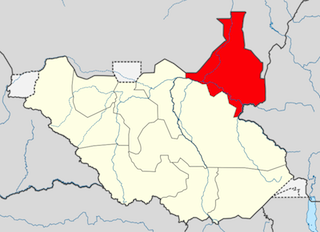Upper Nile governor appoints Malakal mayor amid protests
March 16, 2021 (JUBA) – The governor of South Sudan’s Upper Nile state, Budhok Nyang Kur has appointed the mayor of Malakal town despite protest from a section of the opposition alliance in the coalition government.
Kur appointed Francis Awok Ajang in a decree issued Monday.
The National Democratic Movement (NDM), a member of the South Sudan Opposition Alliance (SSOA), questioned the decision to divide Malakal.
The opposition group cited the South Sudan capital as the basis for questioning the constitutional basis of the decision, pointing to the existence of three governments in Juba, yet unable to cause any of them to relocate.
“The capital of Juba, for example, is still in Juba despite town despite the presence of Juba municipality there. Why should Makal county be an exception? The decision is not based on the constitution of the Upper Nile state nor the revitalized peace agreement. Procedures for amending these legal documents are clear and have not been followed,” said the NDM leader, Lam Akol.
He added, “The few persons who arrogated to themselves the right to take this decision should inform the public about the legal basis of their action. Otherwise, it will be considered yet another gimmick to serve narrow interests”.
Last week, it was resolved at a meeting chaired by the first vice president Riek Machar that Malakal be allocated the status of a municipality with Makal county as its administrative headquarter.
Makal county is located west of Malakal town in Upper Nile state.
Analysts say the decision of the first vice president, approved by the cabinet affairs minister, governor, and his deputy is a political ploy to diffuse tension and ease commotion resulting from giving monopoly of Malakal to one tribe.
Malakal town is contested by a section of the Dinka and members of the Shilluk tribe, two of which have strong claims over its ownership.
Attempts seeking to resolve the dispute have always heightened tension, sometimes resulting in deadly clashes, causing authorities to defer taking a decision, yet none of the rival sides is willing to cede.
(ST)

